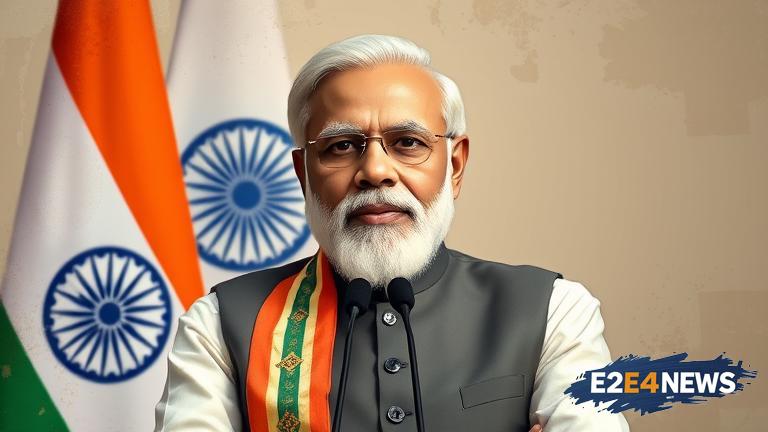India is gearing up for a potential trade war with the United States, as the latter threatens to impose a $50 tariff on Indian goods. The move comes as a response to India’s decision to impose retaliatory tariffs on US goods, worth $235 million. Prime Minister Narendra Modi has vowed not to compromise on the country’s interests, stating that India will not back down in the face of US pressure. The tariffs are set to affect a range of Indian goods, including textiles, chemicals, and pharmaceuticals. The Indian government has been engaged in talks with the US to resolve the trade dispute, but so far, no agreement has been reached. The US has been pushing India to open up its markets to American goods, but India has been resistant to this demand. The trade tensions between the two countries have been escalating over the past year, with the US imposing tariffs on Indian steel and aluminum exports. India has retaliated by imposing tariffs on US goods, including almonds, apples, and walnuts. The Indian government has also imposed tariffs on US medical devices, including stents and knee implants. The tariffs are set to have a significant impact on Indian exporters, who are already facing challenges due to the COVID-19 pandemic. The Indian government has announced a range of measures to support exporters, including providing financial assistance and facilitating exports. Despite the challenges, PM Modi remains committed to his ‘Make in India’ initiative, which aims to promote domestic manufacturing and reduce dependence on imports. The initiative has been successful in attracting foreign investment and creating jobs, but it faces significant challenges in the face of US trade pressures. The Indian government is also exploring alternative markets for its exports, including the European Union and Southeast Asia. The trade dispute with the US has also highlighted the need for India to diversify its trade relationships and reduce its dependence on a single market. The Indian government has been engaging with other countries, including China and Japan, to explore new trade opportunities. The trade tensions with the US have also had a significant impact on the Indian economy, with the rupee depreciating against the dollar. The Indian government has announced a range of measures to support the economy, including cutting interest rates and providing fiscal stimulus. Despite the challenges, the Indian economy remains resilient, with growth expected to pick up in the coming months. The trade dispute with the US is also having a significant impact on the global economy, with trade tensions between the two countries affecting markets around the world. The World Trade Organization has warned of the dangers of a trade war, stating that it could have significant consequences for global trade and economic growth. The Indian government is committed to finding a resolution to the trade dispute, but it remains unclear what the outcome will be. The trade tensions between the two countries are set to continue, with significant implications for the global economy.
